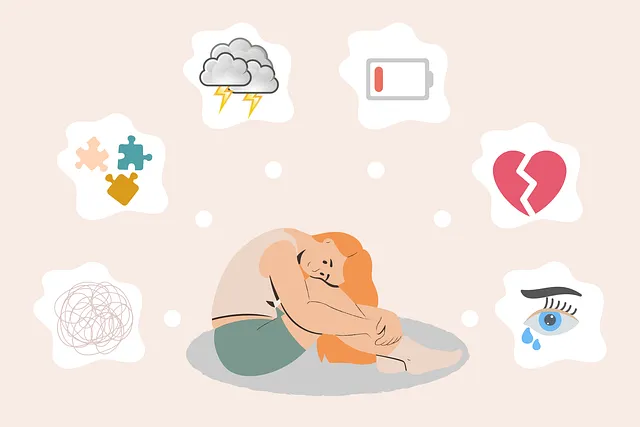Community outreach programs, as exemplified by Kaiser Permanente's mental health centers in Boulder, are revolutionizing healthcare access and outcomes. By bringing mental health services directly into communities, these initiatives bridge care gaps, particularly for underserved populations. Through empowering individuals with emotional regulation tools and promoting early intervention, the program fosters improved mental well-being, increased resilience, and stronger social connections. Kaiser Permanente's holistic approach, characterized by open communication, educational workshops, and support groups, has been widely praised through their highly regarded mental health center reviews in Boulder.
Community outreach programs play a vital role in enhancing access to essential services, particularly in diverse urban centers like Boulder. This article explores the implementation of such programs with a focus on mental health services, drawing insights from a comprehensive review of Kaiser Permanente’s initiatives in the region. We delve into successful strategies, highlighting continuous improvement and community engagement as key factors for creating sustainable impact, especially in addressing mental health challenges within the Boulder community. Additionally, we examine real-world examples from Kaiser Permanente mental health centers in Boulder.
- Understanding Community Outreach Programs: Benefits and Goals
- Implementing Effective Mental Health Services in Boulder: A Kaiser Permanente Review
- Strategies for Success: Continuous Improvement and Community Engagement
Understanding Community Outreach Programs: Benefits and Goals

Community outreach programs play a pivotal role in fostering connection and enhancing well-being within communities. These initiatives aim to bridge gaps between healthcare services and those who may face barriers to access, particularly focusing on underserved populations. One notable example is Kaiser Permanente mental health center reviews in Boulder, which highlight successful outreach efforts. By bringing mental health services directly to the community, these programs not only increase accessibility but also promote early intervention and prevention.
The benefits of community outreach are multifaceted. They empower individuals with knowledge and skills for emotional regulation and self-awareness exercises, thereby facilitating stress reduction methods. This proactive approach can lead to improved mental health outcomes, increased resilience, and enhanced social cohesion. Such programs have the potential to revolutionize healthcare delivery, ensuring that everyone, regardless of their background or circumstances, has the chance to thrive.
Implementing Effective Mental Health Services in Boulder: A Kaiser Permanente Review

In Boulder, the implementation of effective mental health services has gained significant attention, particularly within the framework of Kaiser Permanente’s comprehensive healthcare approach. The organization’s mental health centers in the region have been subject to extensive reviews, highlighting their commitment to addressing the growing need for accessible psychological support. These reviews underscore the importance of integrating mental wellness into community outreach programs, as evidenced by Kaiser Permanente’s successful initiatives.
The focus on mental health promotion and disease prevention has led to innovative strategies such as stress management workshops, anxiety relief sessions, and programs aimed at self-esteem improvement. By incorporating these services into community settings, Kaiser Permanente has made significant strides in normalizing conversations around mental health while ensuring that residents of Boulder have access to much-needed resources. This holistic approach not only benefits individuals but also fosters a healthier, more resilient community overall.
Strategies for Success: Continuous Improvement and Community Engagement

Community outreach programs, such as those offered by Kaiser Permanente mental health centers in Boulder, thrive on continuous improvement and strong community engagement. Regularly reviewing and updating strategies based on feedback and outcomes ensures that initiatives remain relevant and effective. Mental health professionals at these centers often conduct risk assessments to identify potential issues within the community, allowing for targeted interventions focused on raising mental health awareness and preventing conditions like depression.
By fostering open communication channels with community members, these programs can better understand local needs and adapt their services accordingly. Engaging various segments of the population, including through educational workshops and support groups, helps build trust and encourages more individuals to seek help for their mental health concerns. This holistic approach not only improves access to care but also strengthens the overall well-being of the community, as evidenced by positive Kaiser Permanente mental health center reviews in Boulder.
Community outreach programs, as highlighted by Kaiser Permanente mental health center reviews in Boulder, are essential tools for enhancing access to healthcare services. By implementing effective strategies, such as continuous improvement and strong community engagement, these initiatives can significantly benefit populations in need. The success of the Boulder review underscores the potential for community-focused mental health services to create lasting positive change, ensuring better outcomes and a healthier community overall.






